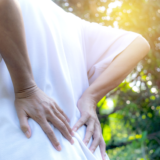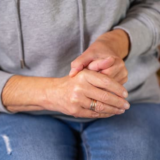Planes, trains and automobiles
December 3, 2020 by Lisa Bywaters

Tips for travelling well
8 December 2021 – This blog was written during the first year of the pandemic and so much has changed since then! Including the ability to head overseas. For information on overseas travel during COVID-19, visit the Australian Government Smartraveller website. And for details about COVID restrictions and guidelines when travelling throughout Australia, visit the government health site of the state or territory you’re visiting.
“I haven’t been everywhere, but it’s on my list.” – Susan Sontag.
With most of the state and territory borders reopened in Australia, many of us are itching to travel. And while we can’t leave the country – there’s still a ban on overseas travel – we can visit regional areas and head interstate. Yay! And just in time for the festive season and summer.
But for some of us, although we find the idea of travelling exciting, the practicalities of it can cause a lot of anxiety and stress. Especially if you’ve got a chronic, musculoskeletal condition. And unfortunately these feelings are only likely to be heightened because of the whole COVID thing.
So here are some tips and tricks to help you manage your condition so you can get the most out of your trip and have the best time.
Planning is vital
Take the time to plan your trip carefully. Being proactive before you go anywhere gives you the opportunity to plan around your condition, rather than have your condition disrupt your trip. So make sure you:
- give yourself plenty of time to pack
- get some rest before you leave so you have plenty of energy
- make your itinerary realistic – and don’t try to cram too much into it (this is a hard one, because if you’re like me you want to see and experience everything!)
- plan some downtime into your trip so you can rest, put your feet up and recharge your batteries.
Packing
This can be one of the hardest parts of travelling – what to take, what to leave at home – so if in doubt, leave it out! Lifting heavy bags out of cars, on and off trains and buses and through airports increases your risk of injury and fatigue. When you travel you also end up carting your luggage around far more than you realise. So:
- pack light – take only what you need
- use lightweight luggage if you have it (or can borrow it)
- don’t forget to pack the things that help make life more comfortable e.g. your lumbar pillow, orthotics, splints
- keep your meds in separate pieces of luggage to ensure you don’t lose it all if your luggage is lost or stolen.
Medical prep
Give yourself plenty of time to get medically prepared for your trip and:
- ensure regular doctor visits, blood tests etc are done before you leave.
- talk with your doctor about vaccinations – do you need any? Are you up-to-date with routine vaccinations like tetanus?
- make sure you have enough of all of your medications to cover you while you’re away. Depending on where you’re going, you may not be able to access them at the local pharmacy.
- store your biological meds properly – your rheumatologist or the pharmaceutical company can advise you on this.
Managing your pain while you’re away
Unfortunately pain follows us where we go, so be prepared. Have your pain medications, heat/cold pack, your lotions and rubs, special pillow – whatever you use to help you deal with pain.
Check out our resource Managing your pain: An A-Z guide. It’ll give you lots of practical information about ways you can manage your pain – many of which you can do wherever you are – at home, on a plane, in another part of the country.
Travel insurance
Even if you’re travelling in Australia and not overseas, travel insurance could be a good idea. It can cover things like lost or stolen luggage, car hire excess claims and cancelled flights. Make sure you know exactly what you’re covered for. And shop around and find insurance that’s best suits your needs. This article by Choice has some useful info to help you decide whether travel insurance is for you: Do you need domestic travel insurance? Will travel insurance cover you when things go wrong on an Aussie holiday?
And be aware that travel insurance is unlikely to cover you for anything relating to COVID now that it’s a ’known event’. Read this article by Choice to find out more: Does travel insurance cover the COVID-19 pandemic? What you’re covered for in the event of an epidemic or pandemic like coronavirus.
And speaking of COVID
Make sure you follow the guidelines for wherever you’re visiting. Are masks required? Are there restrictions on how many people can gather? Do you need to quarantine? Do you need a border pass? Visit the health website of the state or territory you’re travelling within to get the latest info.
And continue to:
- wash your hands regularly
- physically distance yourself from others
- stay home if you’re unwell and get tested
- cough and/or sneeze into your elbow
- wear a mask if you can’t distance yourself (or if it’s required)
- use hand sanitiser when you don’t have access to soap and water.
Just because numbers of active cases are low in most parts of the country, we can’t afford to be complacent. And doing these things keeps you safe and puts you in control, which can help you manage your feelings of anxiety or stress about COVID.
Coming home
- Rest up. After your trip, give yourself a day or so to unpack and rest before leaping back into your daily schedule.
- If you’re feeling stiff or sore consider getting a massage, or seeing your therapist of choice – physio/osteo/chiro/myo.
- Talk the ears off your family, friends, doctor and work colleagues about your trip and the sights, smells and experiences you enjoyed. Before you know it you’ll be dreaming about, and planning, your next adventure.
Other options for travel
You may not be up to travelling far afield – physically and/or mentally it may not be right for you at the moment. This is completely understandable. It’s been a crazy year and we’re all dealing with it in the best way we can. But there are other options:
- Take a day trip or two. It’s amazing how much you can see in a day. And we’re so lucky in Australia with all of the beautiful places we can visit. Just Google day trips and your location and you’ll find some great ideas for your next adventure.
- Plan for the future. Just because you’re not ready to travel now, doesn’t mean you won’t be in the future. So dream about where you’d like to go. Do some research and start making plans. And when you’re ready to travel, you’ll be all set!
- Vacation at home. Put your phone, computer and chores away and toss your normal routine out the window. Do fun things, creative things, relaxing things. Cook special meals. Relax in the garden with a book. Throw a dance party with everyone who lives in your house – or by yourself. Dress in fancy clothes. Build a fort in the middle of the lounge. Grab a colouring book and pencils and spend some quality time colouring. Do things that make you happy and make you feel like you’ve had a break. You deserve it.
Call our Help Line
If you have questions about things like managing your pain, your musculoskeletal condition, treatment options, COVID-19, telehealth, or accessing services be sure to call our nurses. They’re available weekdays between 9am-5pm on 1800 263 265; email (helpline@msk.org.au) or via Messenger.
More to explore
- COVID-19 and travel
Smart Traveller - Coronavirus (COVID-19) advice for international travellers
Australian Government














